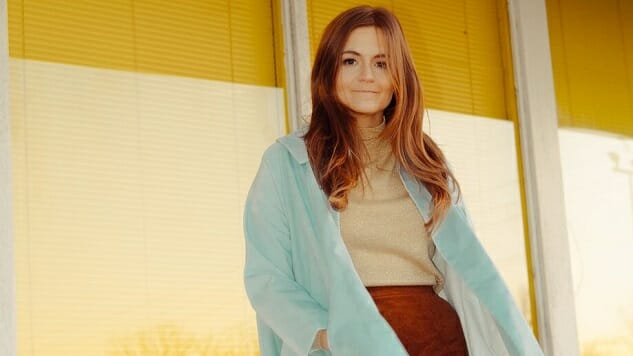The Beautiful and Cathartic Words of Erin Rae
The singer-songwriter opens up to Paste about the female-centric Nashville scene, her new record, Putting On Airs, and channeling her emotions via music.
Photo by Marcus Maddox
Even if you don’t know much about Nashville, you likely know well enough its reputation as a cradle of American music dating back to the 1950s (the birth decade of Music Row), even further to 1925 (the kickoff year of the Grand Ole Opry), and all the way to the 1800s, bookended by hymnal publishing and the construction of the Union Gospel Tabernacle, restyled as Ryman Auditorium in 1904, home to the Opry from 1943 to 1974. The city’s music history is almost more compelling than its present, until you hear Nashville’s 2018 sound and draw two conclusions: Nashville’s 2018 sound is superb, and it’s being shaped predominantly by women.
That may read like outsider’s perception, but talking with Paste Magazine, indie folk singer-songwriter Erin Rae shares the same sense of who’s at the center of Nashville music today. “Yeah, it seems that way to me, too, that women are ruling the scene down here,” she says with a laugh. She’s egalitarian, pointing out that “the guys are killing it, as well,” but without taking a breath Rae rattles off the names of artists like Margo Price, Lilly Hiatt, Kelsey Waldon, Liz Cooper, Becca Mancari, and Lillie Mae Rische, as well as journalists like Marissa Moss, Ann Powers, and Jewly Hight, each, in Rae’s words, “legendary” in Nashville and integral to the city’s identity. And she’s just scratching the surface: “There’s like 30 or 40 women that I could just list off the top of my head, and there’s even more beyond that.”
Just as there’s no one formative event responsible for earning Nashville its sobriquet (“Music City”), there’s no one explanation for what makes Nashville so vibrant a setting in which women can thrive. And Rae being one among them, she can only speak to her own experiences: Ask her in jest to pretend she’s the mayor of Nashville music, she’ll just chuckle and play along. “Well,” she proclaims, affecting mock pomp, “I think I speak for everyone when I say…” Jokes aside, Rae, presently gearing up for the release of her excellent sophomore album, Putting On Airs, takes the matter to heart, though answering the question of Nashville’s appeal to so many gifted female musicians isn’t a straightforward task. For one, the appeal, as Rae describes it, is simply implicit. It’s assumed.
“For us maybe it’s not that shocking,” she says. Hearing Rae’s personal account of Nashville, this makes sense: Working in the same ecosystem with artists like Price, Cooper, and Waldon means normalizing female influence within that ecosystem. The suggestion that Nashville is unique in regards to gender makeup might, for some, sound bizarre. Maybe there isn’t anything unique about it at all. Maybe, according to Rae, “It’s just a very rich music scene,” and maybe the focus on women steering the ship in Nashville is a side effect of the number of people relocating there. “It’s a happening place,” she says. But history and hipness are only part of the picture, and Rae knows there’s more to women’s prominence in Nashville music than coincidence. In many ways, credit goes to Nashville itself.
Consider the Southern Girls Rock Camp (SGRC), a summer day camp “for girls and gender non-conforming youths,” ostensibly a place for girls to learn how to rock an instrument of their choosing but also a place for fostering self-confidence in young women and teach them the art of collaboration via bandsmanship. Listening to Rae talk Nashville, and specifically Margo Price, one truth becomes instantly clear: Key to the success of the city’s many female musicians is the ingrained spirit of sorority and women supporting women, a spirit characterized by Rae’s recollection of Price playing a three-night stay at the Ryman. “At one point there was seven or eight of us women on stage that have known her for a long time,” remembers Rae. “She makes such a point to bring along her friends and continue to support us.” Price’s magnanimity serves as a model for Rae’s own aspirations as an artist. “She’s such a great example of how I want to be. When I have opportunities, I want to bring people along with me to share in those as well.”